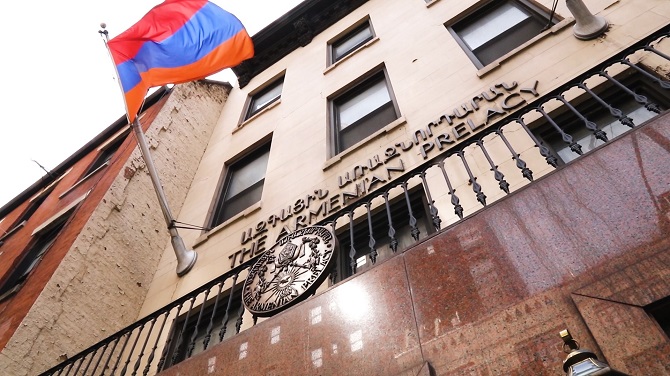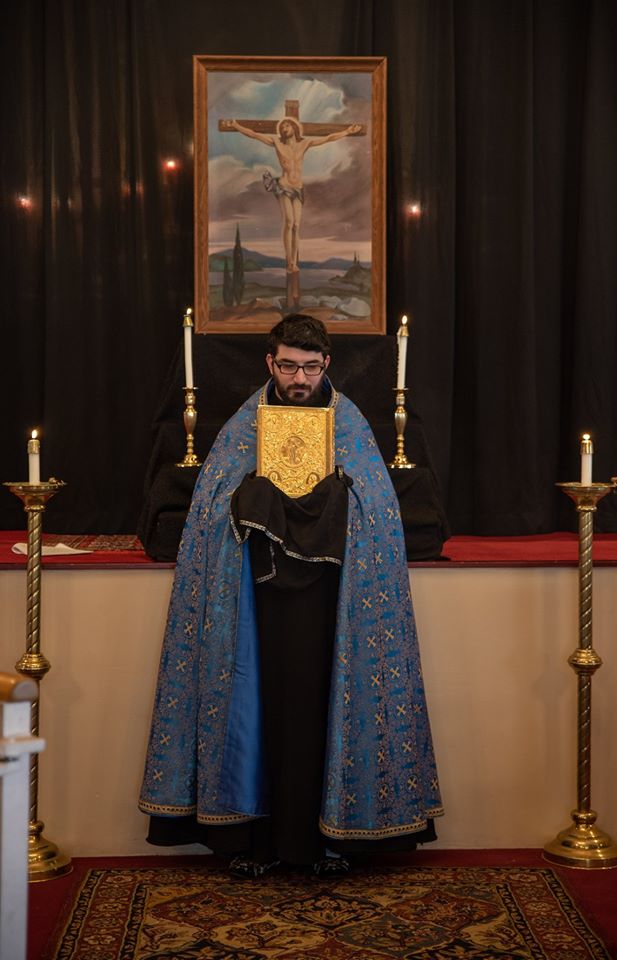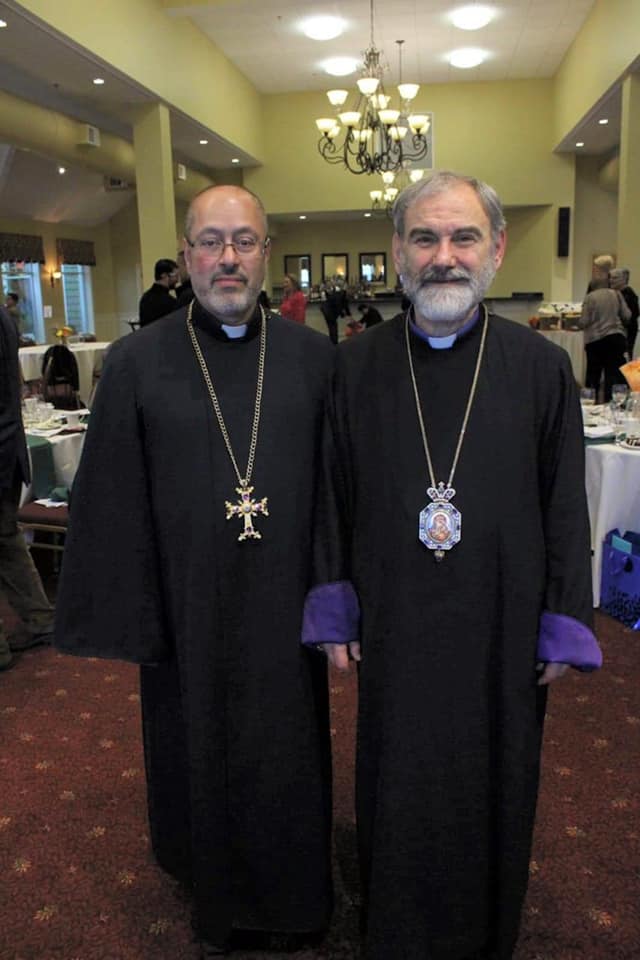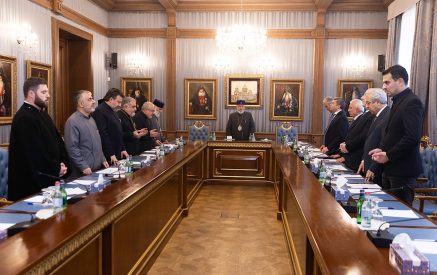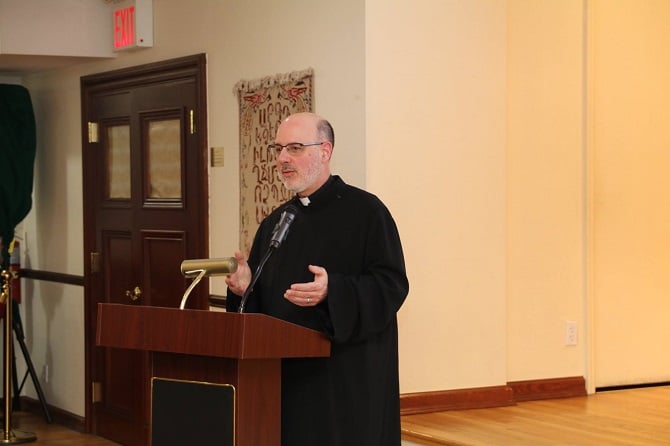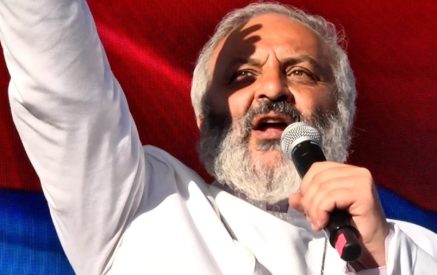The Armenian Weekly. Last week, I interviewed several healthcare professionals in the Armenian American community for their thoughts and recommendations on the global COVID-19 pandemic. This week, the clergy of the Armenian Church were my focus. Both Catholicoi of the church have made the historic decision to close all church services to the public until at least April 9th for public health concerns. Due to the various social distancing regulations in each state, an actual return to normal church life could be even longer. Given the difficult circumstances, I asked several local priests what they were doing in their communities to continue the church’s mission.
“We’re trying to adopt the ‘Love your neighbor’ approach,” said Rev. Fr. Torkom Chorbajian of Holy Trinity Armenian Apostolic Church in Worcester, Mass. “Right now our approach is limited to making phone calls and volunteering to help those who are the most vulnerable in getting out for their basic needs.” Fr. Chorbajian described this approach as “mainly personal and voluntary.”
Rev. Fr. Mikael Der Kosrofian of Soorp Asdvadzadzin Church in Whitinsville, Mass, said, “I personally have and will continue to reach out to the more vulnerable members via phone calls for well checks,” he said. “Along with our trustees, we are ready to give rides to doctors’ appointments [and] run errands, including grocery shopping or pharmacy needs.”
When asked about the many spiritual lessons that could be learned from the crisis, Fr. Chorbajian said, “We learn the importance of human limitation. Humanity thought that by achieving progress in the scientific field, it became able to gradually come out of its limitedness in terms of mortality, lifespan, vulnerability, etc. But we see that an entire pandemic outbreak paralyzed the entire world and pushed it to a turmoil. It’s a great lesson that man can never be a god.”
Read also
Fr. Der Kosrofian related this challenge to some of the themes our church emphasizes during Lent. “The most important lesson to learn is what Jesus teaches us in the parable of the Unjust Judge in the Gospel of Luke, and that is to pray with persistence, with faith and with confidence. During this period of Lent, we are to put the world on temporary hold so that we can reconnect with God and increase our prayer life. God is waiting to hear the prayers of a sincere heart, the heart that loves, forgives, and is pure. He wants us to trust Him in all things and for all things. We need to turn to God, believing and trusting and praying persistently.”
In order to help those especially affected during this crisis, including the elderly and those more at risk for severe illness, Rev. Fr. Kapriel Nazarian of Sts. Vartanantz Church in Providence, RI is organizing a team of parishioners and members of church and sister organizations. He emphasized the themes of loving one’s neighbor in a sermon that he live-streamed this past Sunday. “While loving our neighbor is essential, it’s how we express our faith in so many ways. [God] intends for us to love…that the love we have is rooted first in God, that we love our Lord, and that we rely on His grace to love others just as He loves us.”
Like many of our religious leaders these days, Fr. Nazarian has been live-streaming morning services and his sermon for parishioners for the past couple of Sundays. He is planning on livestreaming a full badarak for both Palm Sunday and Easter. However, he is cautious about live-streaming services once things start to return to normal, as he worries that too many will rely on them instead of actually going to church.
The clergy are all hopeful that the lessons learned from this pandemic are long-lasting. “I think when this is all over, we should avoid what we consider ‘normal’ church life and have a new outlook that we (the church) have a ‘second’ chance to lead people back to church and God,” said Fr. Der Kosrofian. However, he was less enthusiastic about other changes borne from this virus to be permanently implemented. “I’m not convinced with live-streaming as a permanent option, because those who can’t come, elderly, most likely, do not have a computer or access to Facebook anyway. Live-streaming is a temporary solution but can never replace community worship.”
Unfortunately, the present circumstances have prevented the Armenian community from congregating in its churches which have served as its refuge from all manner of calamities for almost 2,000 years. These spiritual leaders remind us, however, that as long as we hold onto our faith, we will never lose sight of God and His love for us, even in the darkest of times.



















































